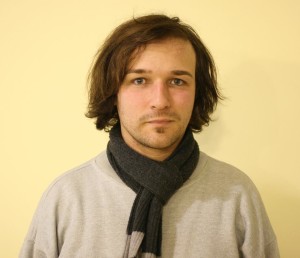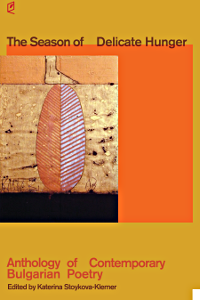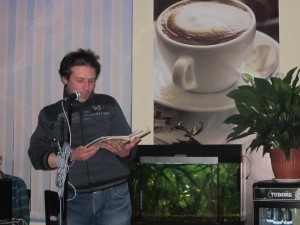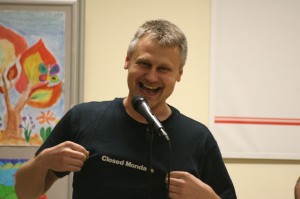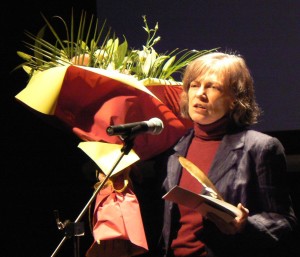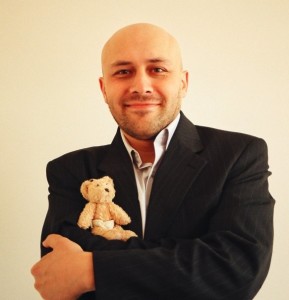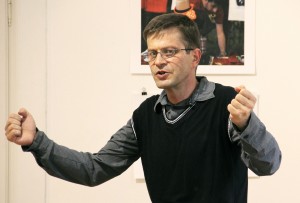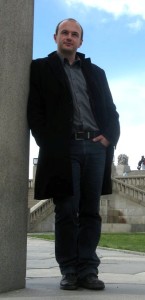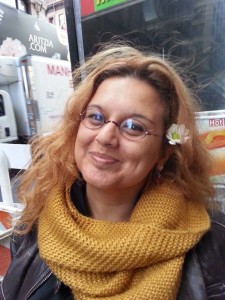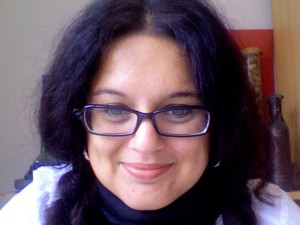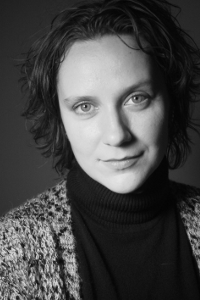 James Pfeifer interviews Lori A. May about her new poetry book, Square Feet (Accents Publishing, 2014)
James Pfeifer interviews Lori A. May about her new poetry book, Square Feet (Accents Publishing, 2014)
Square Feet focuses on domestic space. And I think in its narrowing in, it allows us to see things we might be over-accustomed to, like the kitchen table, with fresh eyes. What are the difficulties in working with material (like the home) that your reader likely has deep personal associations with? What are the strengths?
I enjoyed taking a fresh look at what seems so familiar. Whether it was everyday objects or spaces—like the junk drawer—or nooks and crannies we try to avoid, it was for exactly what you’ve said, that we have personal associations with these things, that made the process of Square Feet so engaging. Our domestic spaces are personal, but that’s also what unites us in a way. We all have our creature comforts, our favorite coffee mugs or pieces of clothing. We have our outside worlds and our private worlds, so this collection encouraged me to explore the lines between the private and the public, to blur those lines and expose those personal attachments and feelings. I suppose the risk is that a reader may not feel as my poetic speakers do, but I hope there is something to connect to, on some level, that still offers a take-away.
How did this collection come into being? Was there an aha moment where you decided the collection would focus on the home or was the process more organic?
I had drafted a few poems that all related to the domestic in one way or another, but it wasn’t until I saw that these were more about relationships within the domestic space, and how those relationships are shifted or shaped by their environments and material accessories that I began to think in terms of a cohesive collection. The title came to me in a sudden burst early on and I knew immediately Square Feet worked, both as a title and for a frame to work within. I continued to draft so-called random poems, but any time a poem fell into my theme and framework, I set it aside for the collection.
 What did you learn about home or domesticity in writing this collection?
What did you learn about home or domesticity in writing this collection?
I think I learned what I already knew, but the process of writing cemented a few notions, for sure. How we value our privacy once we close the doors to our home, yet open up to vulnerabilities when we invite others into our space. We trust others in such personal and private spaces, hoping there is no judgment, cringing at the thought of what others think of our messy closets, dusty window frames, chipped serving platters. We so often work to hide pieces of ourselves and present the best-of in the outside public space, but it’s harder to hide things in the home. And we shouldn’t have to. But it was an interesting process to bring together a few speakers and alternating points-of-view in this collection, to reveal how fragile that trust is and how guarded we can be in our personal spaces, particularly when we feel threatened.
In addition to poetry, you write fiction and creative nonfiction. How does your work in prose influence your poetry, and how does your poetry influence your prose?
On any given day I’ll work on both prose and verse, so the two definitely intersect for me. I’ll think about sound and diction when working on prose, like I would with poetry, just to challenge myself and make deliberate choices. In poetry, I’ll take a step back to think how the draft speaks to a story arc and what I might do to enliven the imagery and point of view.
What do you hope readers will encounter in Square Feet?
I hope readers will see something new in what is commonplace. I hope readers will walk away from this collection with a sense of discovery and perhaps a sense of unity, in that affirmation that we are all so similar when it comes to what we want, how we behave, and what we desire. Life is challenging and hectic and chaotic most days, but it’s also kind of simple. We all work toward similar goals and dreams, when you get to the base of things, and I think that’s interesting. “That is part of the beauty of all literature,” F. Scott Fitzgerald said. “You discover that your longings are universal longings, that you’re not lonely and isolated from anyone. You belong.” My hope is that readers will see something of themselves in Square Feet and maybe nod a little the next time they open up that junk drawer.
Square Feet is currently available from the Accents Store.
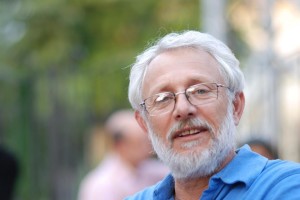 What would you like for the American readers to know about Bulgarian poetry?
What would you like for the American readers to know about Bulgarian poetry?